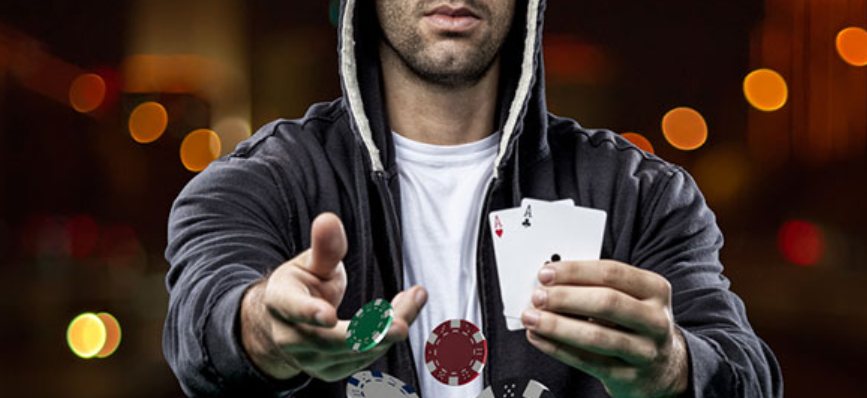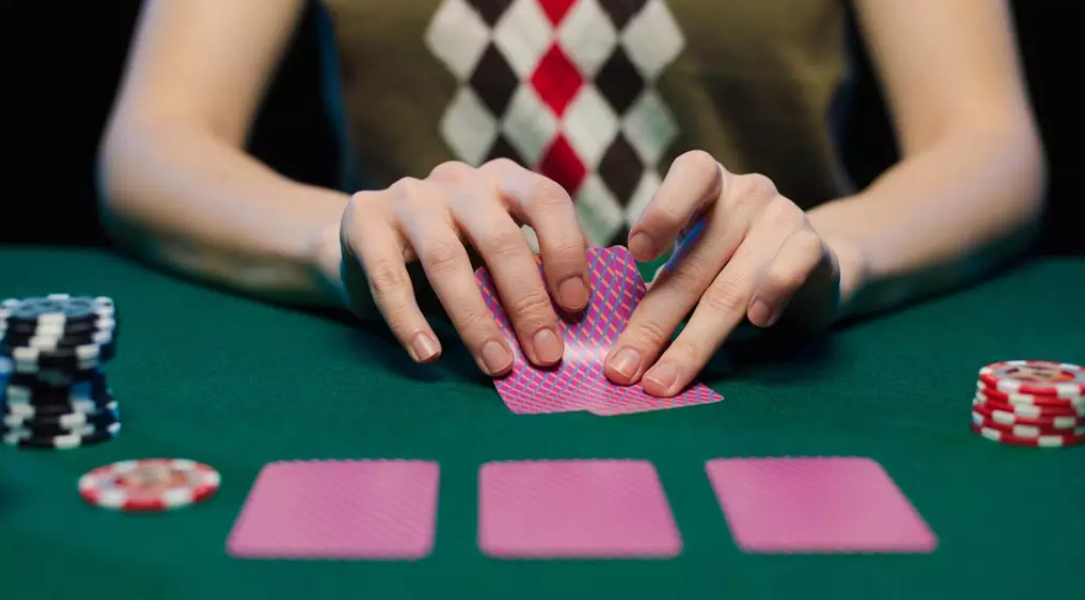If one’s knowledge of poker is based on what they’ve seen on TV or in the movies, folding may seem like a terrible idea. Screen characters almost always have an amazing hand or make a great bluff to win the pot at any cost. That’s not how poker works in the real world. Folding, like all other possible actions, is simply a technique to maximize profit and reduce costs.
When you fold your cards in poker, you stop participating in the hand and lose all the money you have put into the pot up to that point. The hand ends for you after your cards hit the “muck”. You can no longer win the hand, but you also can’t lose any more money or chips until the next hand.
What happens when you fold?

You end the hand after you click the fold button, throw your hand in the trash, or verbally declare that you fold. Play continues if other players join in. If you are playing heads-up, your opponent takes down the pot and play moves on to the next hand.
Folding techniques
Folding is simple when playing online. All you have to do is press the fold button. There are a few other factors to consider when playing live. You should never show your cards unless the hand is completed and you have a valid reason for doing so. It is both against the rules and a serious breach of etiquette if you do this in the middle of a hand, as it may provide unfair information to one or more players. It’s OK to “fold and show” if the hand ends when you fold. Good players, on the other hand, virtually never do this. Poker is a game of information, and giving your opponents extra knowledge is rarely a good decision.
When should you show folded cards?
The only time you should show a folded hand is when you are trying to show a certain image. It is worth noting that I used the word “consider” in my sentence. Even when we extend our hand for what we consider to be a positive purpose, we often end up giving away too much information or having the opposite effect than we intended.
For example, we are in the late stages of a tournament and are on the verge of elimination. Twice in a row we go all-in with our small stack, the first time with garbage and the second with A9. Since A9 is a decent hand for shoves, when everyone has already folded, we turn over our cards to “show” the table that we are not crazy and that our shoves are reasonable and worthy of respect. At first glance, this seems like a fantastic idea. Maintaining our fold equity at the end of the tournament is quite beneficial, as the blinds are often very high, and winning them without a fight is desirable.
The only drawback to this example is that we may end up shooting ourselves in the foot. Imagine getting QQ, KK, or AA shortly after flashing our A9 and shove all-in once again. The player in the big blind is now looking at KQ, which normally should have been a check to him. Instead, he folds because he thinks we are too close and shoves only Ax or better cards. We just missed a fantastic opportunity to double up.
When should I fold my hands?
When there are no more profitable actions to take, your hand should be folded. Basically, you wave the white flag and give back the chips or money you have already put into the pot. However, just because you lose a few chips doesn’t mean you made a mistake or did something wrong.
Every winning strategy includes folding
When you fold your hand, it may seem like you are losing money right now. This is true, but it does not mean that you made a mistake. It simply means that you had no other profitable opportunities. In fact, when all else fails, folding is nothing more than a technique to cut your losses.
In the course of the game, you will face aggression such as betting or reraise. When this happens, you usually have three options: reraise, call or fold. A good poker player will evaluate his alternatives and determine whether a raise or call is profitable in the long run. If both are losing options, the only option (and the best option) is to fold.
It all comes down to expected value

In poker, expected value, or EV, is what determines how much money you make. If the sum of our actions (bets, calls, folds) in a given hand results in a long-term profit, if the hand is played out indefinitely, then our line has a positive expected value, or +EV. The hardest part is determining whether our behavior is +EV.
The choice of +EV action is not always obvious. If someone shoves all-in before the flop and we have AA, we can be sure that our move will earn us money in the long run. On the other hand, many losing decisions are simple to recognize. Suppose we are playing with 72o and someone shoves all-in before the flop. Unless we’ve already put a lot of money in the pot, it’s always a straight fold and we know we’re making the right decision.
Unfortunately, many of our judgments are not so simple. What separates the really great players from the rest are precisely these moments of gray area. Even so, by developing a strong approach that consistently places you in profitable spots, you can reduce the number of difficult decisions you have to make during a session.
The so-called “difficult” spots become much less frequent when one plays a limited number of hands, prefers to play in position rather than out of position, and takes the edge in most hands. Then, if one has a lot of knowledge, figuring out the simplest ways to make money becomes second nature. This procedure can be sped up with thorough research and the use of software. In addition, reviewing previous hands and looking for better ways to play them will help you avoid making the same mistakes over and over again.
The point is that in poker, no emotion should be tied to a particular move or statement. Only one thing should always be in our mind: which actions are profitable, or better, which actions are the most profitable. Because there are often many odds that have +EV.
Summary
In conclusion, when learning poker, you should not think of folding as a bad thing or as an unsatisfactory end to a bad hand. Rather, think of it as a way to cut your losses and get out of unfavorable or unproductive situations. Folding is your ally.
